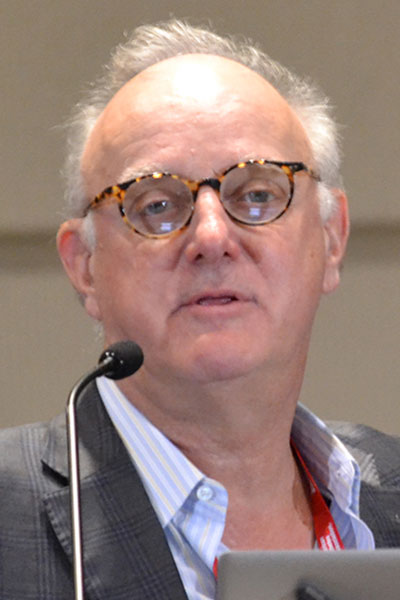Throughout the COVID-19 pandemic, several studies investigated and pointed to a link between COVID infection and type 1 diabetes. However, some argue that there are holes in the published studies that need to be addressed.

A debate on Friday, June 21, presented differing information on whether SARS-CoV-2 causes type 1 diabetes. Setting the Record Straight—Does SARS-CoV-2 Cause Type 1 Diabetes? will be available on-demand on the virtual meeting platform for registered meeting participants following the 84th Scientific Sessions.
Peter K. Jackson, PhD, Stanford University, explained how COVID-19 can enter beta-cells and impair beta-cell function.
Dr. Jackson’s lab investigated whether beta-cells in the pancreas can be infected by SARS-CoV-2 by exposing human islets from healthy, recently deceased donors to the virus. Their findings indicate that the virus preferentially infects the beta-cells of pancreatic islets.
“There’s a clinical force of COVID. Most people get the virus, they become infected. They have a mild disease and the symptoms onset and then are regular in about two weeks or so,” he said. However, up to 15 percent of patients develop more severe disease, and they can have a three- to six-week course of illness.
Some patients with severe COVID-19 also reported symptoms linked with diabetes, such as new-onset hypoglycemia, diabetic ketoacidosis, and exacerbation of existing diabetes, he noted.

Carmella Evans-Molina, MD, PhD, Indiana University School of Medicine, countered that infection doesn’t equal causation. SARS-CoV-2 has been observed in multiple cell types and isn’t exclusive to the pancreas, she noted.
Dr. Evans-Molina also said even though multiple studies indicated there is a consequential link between COVID-19 and diabetes, in some cases, the quality of the research was insufficient.
Many lessons can be learned from the COVID-19 pandemic regarding the importance of randomized controlled trials and providing honest appraisals of study limitations, especially when sharing data with the media, she said.
“I do want to emphasize that I think that we do need to think about the importance of negative studies, and confirmatory studies are important,” Dr. Evans-Molina explained. “They’re not as often attractive to journals, especially when they come from something that’s working them in the literature. But I think the more that we do this, the better it is for our community and our field, and the trust that we build with our patients and people around the world.”

Register Today for the 85th Scientific Sessions
Join us in Chicago for the 85th Scientific Sessions, June 20–23, to learn about the latest advances in diabetes research, prevention, and care. Full in-person registration includes access to all of the valuable onsite content during the meeting and on-demand access to session recordings June 25–August 25.

